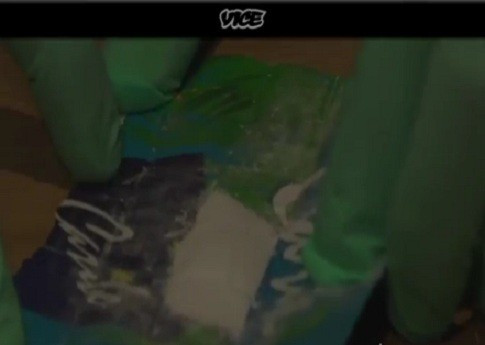Bath Salts, Devil's Breath, Angel Dust: World's Most Dangerous Drugs

A mind-bending drug with the innocuous name of "Bath Salts" is being blamed for the recent wave of cannibal incidents in the US that have hit headlines recently.
The legal high, also known as Cloud Nine, was first linked to Rudy Eugene who was discovered eating another man's face in Miami before he was shot dead by police.
Despite his girlfriend, Yovonka Bryant, saying he did not use hard drugs, police believe that 31-year-old Eugene, who was naked at the time of the incident, was in a "zombie-like state" when he attacked his victim, Ronald Poppa.
Armando Aguilar of Miami police said: "Whenever we see that a person has taken all of his clothes off and has become violent, it's indicative of this excited delirium that's caused by an overdose of drugs.
"What's happening is that inside their body their organs are burning up alive."
Experts are warning people to stay away from the "addictive and dangerous" drug after other cannibal-like attacks were reported.
Brendon De Leon had to be fitted with a Hannibal Lecter-style mask after he threatened to eat two Miami police officers.
In another case, Carl Jacquneaux, 43, is accused of attacking Todd Credeur in Scott, Louisiana, while under the influence of the synthetic drug.
IBTimes UK has a closer look at some of the world's dangerous drugs and just how they can affect their victims.
Devil's Breath
Scopolamine, known as the Devil's Breath, is considered by many as the world's scariest drug and is being sold on the streets of Colombia.
It looks like cocaine but can turn users into zombie-like creatures, eliminate free will and wipe memory.
The odourless and tasteless drug can be administered by criminals by simply blowing it into someone's face.
Bath Salts
The mind-altering drug was banned in the UK two years ago after it was blamed for several deaths in Britain in 2010.
It has recently been linked to a series of cannibal-like attacks in the US and is considered as highly addictive and dangerous.
Users are said to develop acute paranoid psychosis just hours after taking it. Symptoms include heart palpitations, nausea, hallucinations, paranoia and erratic behaviour.
Angel Dust
Phencyclidine (PCP), known as Angel Dust, was first synthesised in 1926. In 1978 it was declared as the No 1 drug problem in America.
Users of this drug often suffer from euphoria, loss of inhibitions, anxiety, disorientation, restlessness, drowsiness, or disorganised thinking.
It is considered 10 times more volatile than methamphetamine.
© Copyright IBTimes 2025. All rights reserved.






















